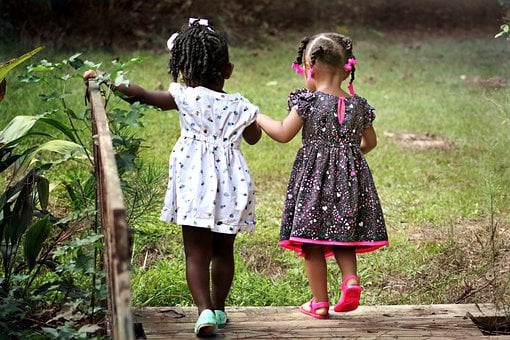Myth: Preschool's Just About Playing with the Kids

One of the biggest trends in current K-12 education is the emphasis on early childhood learning; research has shown that children who start formal schooling earlier than Kindergarten perform better academically than their peers who don't. Preschool is rapidly becoming mandatory in many states--Twelve states in the U.S. require all children starting Kindergarten to attend at least a year of preschool, and more states are requiring child to attend an early child institution prior to entering Kindergarten. Not only that, better academic performance is not only the benefit of early childhood education. A Harvard study has proven that a well-rounded preschool education paves the way to good life-long health (2010).
One of the most common misconceptions of early childhood educators is that what they do is babysitting, since the children "are too young to be learning anything." This is not true! Children are constantly learning, and learn best when incorporated in play. Early childhood educators cultivate children's creativity and critical thinking skills by asking probing questions and planning thought-provoking activities that both satisfy significant milestones and lets children explore the boundaries of their understanding.
But what does it take to become an early childhood educator? It's much easier than one might think!
The following classes are the foundations of becoming an early childhood educator. When taken concurrently or consecutively, a teacher can quickly become certified in less than six months:
- 45-Hour Methods and Materials (according to three age groups: Infants and Toddlers, Preschool, and School Age)
- 45-Hour Growth and Development from Birth to 12 Years
- Including All Children and Americans with Disabilities
- Basic Health & Safety and Breastfeeding Awareness
- First Aid and CPR (renewed every 2 years)
Are you ready for a career change?
- Asthma, Allergy and Anaphylaxis Prevention and Management Training for Early Education Providers
- CDA Bridge Bundle: Family Child Care without Portfolio Review
- CDA Bridge Bundle: Infant/Toddler without Portfolio Review
- History, Policy, and Practice in ECE
- 45 Hour Child Growth and Development
- 45 hour Growth and Development Birth-age 12 ONLINE
- Understanding Print Knowledge in Preschool
- CDA Bridge Bundle: Preschool without Portfolio Review
- Myth: Preschool's Just About Playing with the Kids
- 10 Reasons this Summer to Take Pediatric First Aid and CPR with ChildCareEd
- Bridging Generations: Creative Activities to Celebrate National Senior Citizens Day with Kids
- Labor Day Fun: Creative Ways to Celebrate with Kids and Keep Them Engaged
- Kickstart a Healthy Routine for Kids That Actually Sticks Past January
- These Adult and Pediatric CPR Facts Will Shock You!
- Gross Motor Spring Activities for Kids: Fun Ways to Build Strength and Coordination
- 🌈From Chaos to Calm: How to Create a Peaceful, Happy Classroom
- How Play Supports Brain Development in Infants, Toddlers, and Preschoolers
- Open-Ended Art Activities That Build Confidence in Preschoolers
- Understanding Child Development Milestones: A Complete Guide for Child Care Providers
- Activities for Black History Month: Classroom Ideas for Kids (Ages 2–8)
- What are the choking hazards by age for foods and toys?